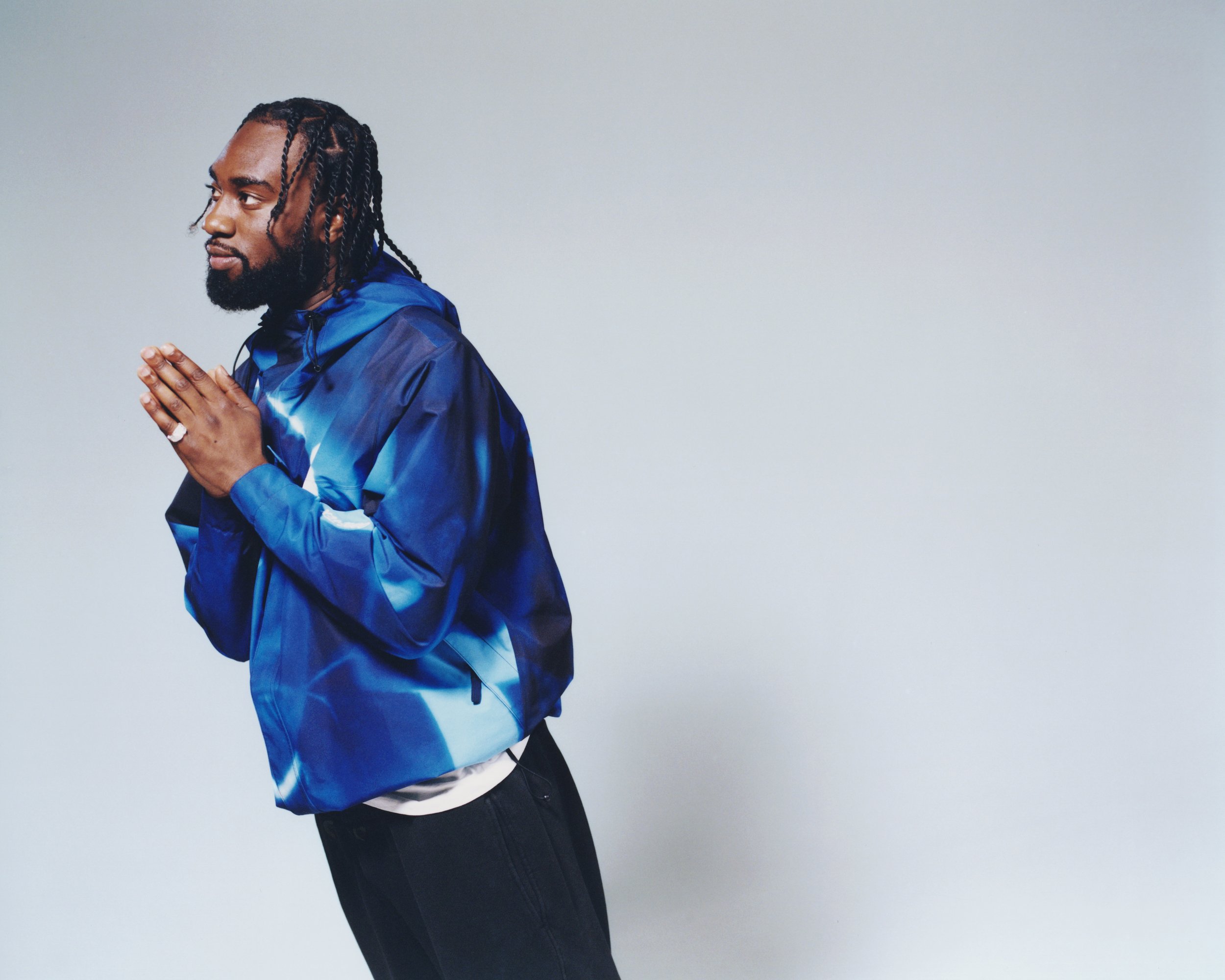Kofi Stone: "I Felt a Profound Sense of Peace When I Finished My Album"
The bold Birmingham rapper speaks…
After the release of his new album, A Man After God’s Own Heart, Kofi Stone reflects on the journey that shaped its creation—a journey of self-discovery, spiritual growth, and unwavering faith. In this deeply introspective project, Kofi bares his soul, sharing how his evolving relationship with love and faith has guided him through a transformative chapter of his life.
Taking time to reconnect with oneself often brings its own set of challenges, but Kofi embraced this period as a chance to grow. Five years after his cult classic debut, Nobody Cares Till Everybody Does—which featured collaborations with BRIT-nominated rapper Loyle Carner and Irish singer-songwriter Maverick Sabre—Kofi's latest record is a testament to his personal and artistic evolution. With A Man After God's Own Heart, he has created a body of work that is not only a reflection of his innermost thoughts but also a bridge for listeners seeking solace and connection through his lyrics.
Born in East London and raised in Birmingham, Kofi Stone has long been celebrated for his introspective and honest storytelling. Since his independent debut catapulted him into the spotlight, he has toured internationally with Loyle Carner, performed on global festival stages, and worked with talents like Jacob Banks, Mr. Jukes & Barney Artist, and Tiana Major9.
Now, with his latest LP, Kofi returns to his roots while venturing into new territory. The album, inspired by the biblical story of King David, mirrors Kofi's commitment to self-exploration and redemption. Featuring the late Benjamin Zephaniah on album standout "May Sound Crazy", the project carries a poignant weight as it honours one of the final artistic contributions of the revered poet and activist.
Speaking to The Culture Crypt, Kofi opens up about the inspirations behind the album, his personal growth, and how he hopes his music will resonate with others on their journeys of self-discovery.
The Culture Crypt: Congratulations on the release of A Man After God’s Own Heart. Talk us through your album's creative process
Kofi Stone: "It started towards the end of the pandemic. I spent a lot of time alone, getting to know myself better. I wanted to write something true to where I was in life—a reflection of the lessons I was learning. But it wasn’t an instant process. By the end of the pandemic, I had one track, "May Sound Crazy", that ended up featuring the late Benjamin Zephaniah, with just part of the first verse.
"That song became a cornerstone. I held onto it for nearly two years before I finished it, and from there, the rest of the album began to take shape. It wasn't immediate, but slowly, the songs started coming together. I wanted to explore my upbringing, my faith, and love—similar to my first album [Nobody Cares Till Everybody Does] but more open and reflective of where I am now."
How do you want this album to influence people?
"I want it to be healing for people, especially those who've faced trauma. I hope it's comforting and offers an insight into faith. For young men in particular, I want it to be an example, something relatable that shows it's okay to be vulnerable and reflective. Ultimately, I want people to feel seen and inspired."
Did you face any challenges in creating this album?
"It was definitely a challenge, but in a different way than my first album. With the debut, there was no benchmark to compare it to, but with this one, there was some pressure to live up to expectations. That said, I didn't let it dictate the creative process.
I focused on staying true to myself because that's why people connect with my music. The process was testing—life doesn’t stop just because you're making an album—but I think the challenges made the final result more authentic."
What did some of those challenges—and the album as a whole—teach you?
"Patience was a big one. There were moments when songs weren’t coming together, and I almost gave up on myself. But I also learned I'm resilient. I kept going, even when it felt like progress was slow.
Some songs took over a year to finish, which taught me that creative work isn’t always linear. It reaffirmed qualities I already knew I had, but it was a deeper learning experience."
Which track was the hardest to create?
"There were a few, but "AMAGOH (Life Won't Kill Me)" stands out. It's the first track, and I really dug deep into my mental and spiritual state. I was wrestling with understanding my faith through a human lens, which doesn’t always translate easily. You can hear that tension and pleading in the song.
It was tough to write but also incredibly rewarding. On the other hand, "I Owe It All" felt less difficult but deeply emotional—almost like a prayer. I felt a sense of peace when I finished it, as though the message had been received. Overall, I felt a profound sense of peace when I finished my album."
The cover art for your album is very symbolic. How did the concept and artwork come to life?
"The image of me being baptised in water, surrounded by people, was something I envisioned early on. It represents striving for a big heart—spiritually, not physically. The larger heart in the water symbolises kindness, love, and all the values that God and Christ embody.
I wanted the setting to reflect my roots, so it's based in Ghana, my mother's homeland. I sketched the concept myself and shared it with the artist, who brought it to life beautifully. It's a powerful declaration of my faith and connection to my heritage."
You're known for your storytelling. How does this shape your music?
"I'd describe my style as introspective, soulful, and deep, but it's also versatile. Not every song has to be heavy—take the song "Colours In My Mind", which is just about having fun with friends.
I like to tell relatable stories, whether they're based on my own experiences or others. It's about creating a well-rounded body of work that connects with people on different levels."
What's next for you?
"There's definitely more on the way [laughs]. I'm working on a deluxe version of the album, but it depends on how many new tracks I can put together. Beyond that, I'm exploring the idea of an EP. Hopefully, everything will come together soon—you won't have to wait another four years."
Stream A Man After God's Own Heart below:



